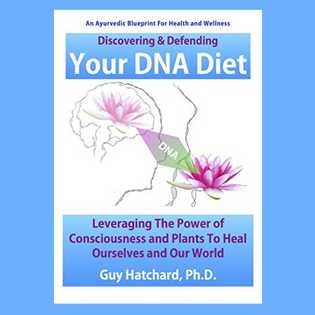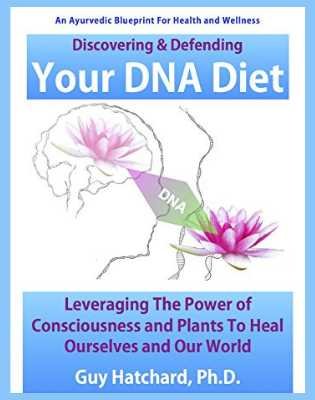Dear Friends,
Congratulations, and a big thank you to all our subscribers and supporters. Winston Peters announced yesterday that the scope and process of the Covid enquiry is to be extended as a matter of priority; the Therapeutic Products Bill is also to be repealed. Below, you will find our latest release reviewing where we stand and what is needed as we move ahead.
The coming months will require an ongoing effort to ensure the government, the public, and the COVID-19 inquiry are kept well informed and backed by cogent summaries and links to the latest scientific findings. We remain committed to keeping up our work and respectfully ask that you consider supporting our work with a donation according to your means. Small contributions help to keep our service going, larger one-off donations will enable us to improve and expand our outreach which is growing every day.
A huge thank you to those who read and circulate our reports and to those who support us regularly.
Guy and the Hatchard Report Team
The following article is also available as a printable PDF and an audio version.
The Tide is Turning, but Much Remains to Be Done
Yesterday’s coalition policy announcements validated our lobbying efforts and those of multiple others over the last two years. Some key research findings and concerns finally penetrated the political firewall. We have turned a corner, but it is a first step and there is a lot more to do. As Winston Churchill said following the first allied victory of the war at El Alamein:
“Now this is not the end. It is not even the beginning of the end. But it is, perhaps, the end of the beginning”.
All over the world, breakthroughs are being made slowly but surely as newly published research studies are overpowering the biotechnology ‘safe and effective’ narrative. This is being led by concerns over mRNA vaccines. While our medical authorities and many in government still appear to believe that Covid vaccine adverse effects are either very mild or don’t exist, a team at Yale University have pushed ahead to publish details of what they have termed the ‘Chronic Covid Post-Vaccine Syndrome‘
The study followed 241 individuals for a year who had self-reported feeling unwell after mRNA Covid vaccination. Despite trying dozens of treatment options, a survey of the participants found:
“The five most common symptoms were exercise intolerance (71%), excessive fatigue (69%), numbness (63%), brain fog (63%), and neuropathy (63%). In the week before survey completion, participants reported feeling unease (93%), fearfulness (82%), and overwhelmed by worries (81%), as well as feelings of helplessness (80%), anxiety (76%), depression (76%), hopelessness (72%), and worthlessness (49%) at least once.”
The authors concluded: “There is a need for continued investigation to understand and treat this condition.”
This result was echoed by researchers at Bangor University, Wales who found that ‘People who stuck by UK Covid rules have worst mental health‘ saying:
“It’s important to recognise that those who took the greatest steps to protect themselves and others have seen an enduring impact on their mental health [which] can’t be easily shaken off.”
Although not specifically mentioned in the survey, compliance with government policy in 2020 evolved to include its flagship recommendation—Covid vaccination in 2021. Willegers, an academic at Bangor University’s institute for the psychology of elite performance concluded:
“Future government campaigns need to highlight the personal costs and benefits involved, not just people’s responsibility to others.”
The authoritative UK Daily Telegraph has run an article commenting on the legal claims of those harmed by Covid vaccination seeking compensation before the courts entitled The real Covid jab scandal is finally emerging—The young and healthy, who were at minimal risk from Covid, should not have been told they had to take the vaccine.
It notes that the legal claim concerning wrongful death lists the absolute risk reduction of Covid infection after the AstraZeneca jab was only 1.2%, meaning that the risk of harm should have been recognised as sufficiently large to outweigh this very minor effect and tip the scales against a universal vaccination policy.
There are obvious lessons here for the new government in New Zealand. The outgoing government with the help of its supporters from across the political and social spectrum exercised almost total control over the Covid narrative, ignoring the novel nature of the technology, the absence of long term testing, and the warning signs of record rates of adverse effects. The exact details of how they achieved this level of censorship should no doubt be a subject covered by the forthcoming Covid Inquiry.
A paper issued by a group calling itself Public Health Communication Centre entitled “Briefing for the Incoming Government—Why we need an Aotearoa Centre for Disease Control (CDC)” illustrates how government policy is affected by lobbying. The paper is authored by a number of scientists including Michael Baker, well known as senior advisors to the previous government who steered Covid policy. It calls for a US-style disease control organisation to operate our health service.
On paper this sounds like it might be a sensible idea until you remember that the CDC botched the Covid response in the US. In fact the so-called Public Health Communication Centre is funded by the GAMA Foundation Governance and Policy Studies Endowment Fund which is solely controlled by a single family. The actual crossroads we have arrived at is not one in need of increased control by vested interests, rather more open dialogue.
Most importantly, no data has been released in New Zealand comparing the long term health outcomes of the vaccinated with the unvaccinated.
The outgoing government, scientists, our health service, Medsafe, experts and the media have all been complicit in hiding this data. Entrusting our future health policy to the same people in the absence of safeguards, open data and public debate makes no sense at all.
An investigative report in the UK Observer entitled ‘Shocking’ scale of UK government’s secret files on critics highlights the extent of control that governments can exercise under the radar of public scrutiny. It reports ‘Fifteen government departments have been monitoring the social media activity of potential critics and compiling “secret files” in order to block them from speaking at public events’. Did something like this occur in New Zealand ministries and at public and private institutions? It seems likely. We need to know and ensure it doesn’t happen again.
This means that we have to question the quality and veracity of the advice that the government received from so-called experts during the pandemic and is continuing to receive right up to the present day. An article in the NZ Herald on the 23rd November entitled “National security threat – NZ’s isolation no longer a guarantee of safety” is a case in point:
In the article ,Professor William Hoverd – the director at Massey University’s Centre for Defence and Security – says the country now faces new internal and external threats exemplified by the protest at Parliament, which he believes consisted of a large group of New Zealanders illegitimately venting extremist frustrations. Hoverd is quoted as saying:
“We’ve seen the national security sector focus on social cohesion… And why is that? It’s because they’re thinking about this tension that happens when legitimate protest, which is something we have a long successful tradition of in New Zealand, becomes extreme. And then there’s the worry that this extremism becomes violent. And that’s what we saw happen in Wellington.”
Incredibly, the article continues: “The problem is that this extremism bubbling under the surface has the potential to motivate some incredibly heinous acts, as was seen during the Christchurch Mosque terrorist attack,”—an attack which occurred three years prior the Wellington protest, whose perpetrator was a terrorist equally concerned to attack and kill both muslims and jews.
Conflating a largely peaceful demonstration about vaccine safety and policy with an extreme terrorist act calls into question the integrity and political motivation of those employed by the government to advise them on the identification and censorship of disinformation.
So you can see that we are making some progress, but very significant questions about the formation of government policy remain. This arises specifically because many government actions are not actually initiated or controlled by parliament. This has happened due to laws which have granted the power to make regulations to unelected bodies and tsars largely unfettered by parliamentary scrutiny. Such bodies can and do become subject to industry pressure driven by commercial priorities rather than public benefit
This is particularly true of the health and food sectors where the pharmaceutical, agrichemical, and biotechnology industries are using their trillion dollar power to sway government policy to endorse novel synthetic manufactured products whose safety is in question, thereby replacing time-honoured, natural, cost-effective and safe approaches.
Whilst biotechnology deregulation was not mentioned in the coalition agreement, in a worrying sign Judith Collins, the chief architect of biotechnology deregulation, was appointed Minister for Science and Technology. Indicating we have much to do, but if Collins and like-minded supporters attempt to deregulate biotechnology, they will be swimming against the tide of science. Biotechnology is inherently dangerous.
When it comes to government, politicians should never lose sight of the well being of the public.
Our focus during the coming months is on the need to publicise research which is demonstrating the risks inherent in biotechnology experimentation. Many in our current health services appear to have normalised these risks in a twisted logic accepting them as some sort of inevitable cost of progress. We believe that the main take home lesson of the pandemic should be Global Legislation Outlawing Biotechnology Experimentation. We will be reinforcing this point in our ongoing submissions to the Covid Inquiry.
Guy Hatchard, Ph.D., was formerly a senior manager at Genetic ID, a food testing and certification company (now known as FoodChain ID).
Guy is the author of Your DNA Diet: Leveraging the Power of Consciousness To Heal Ourselves and Our World. An Ayurvedic Blueprint For Health and Wellness.







